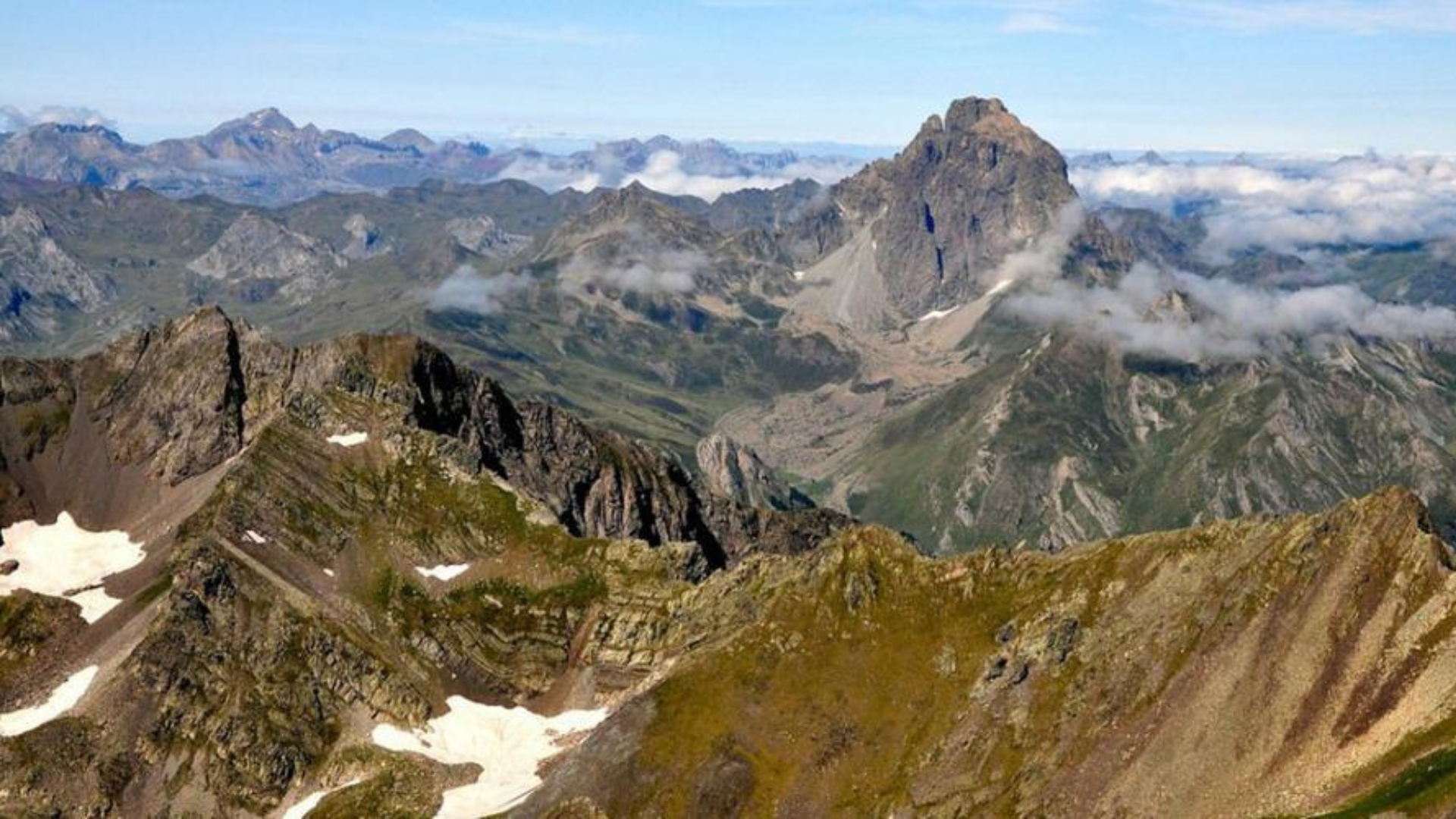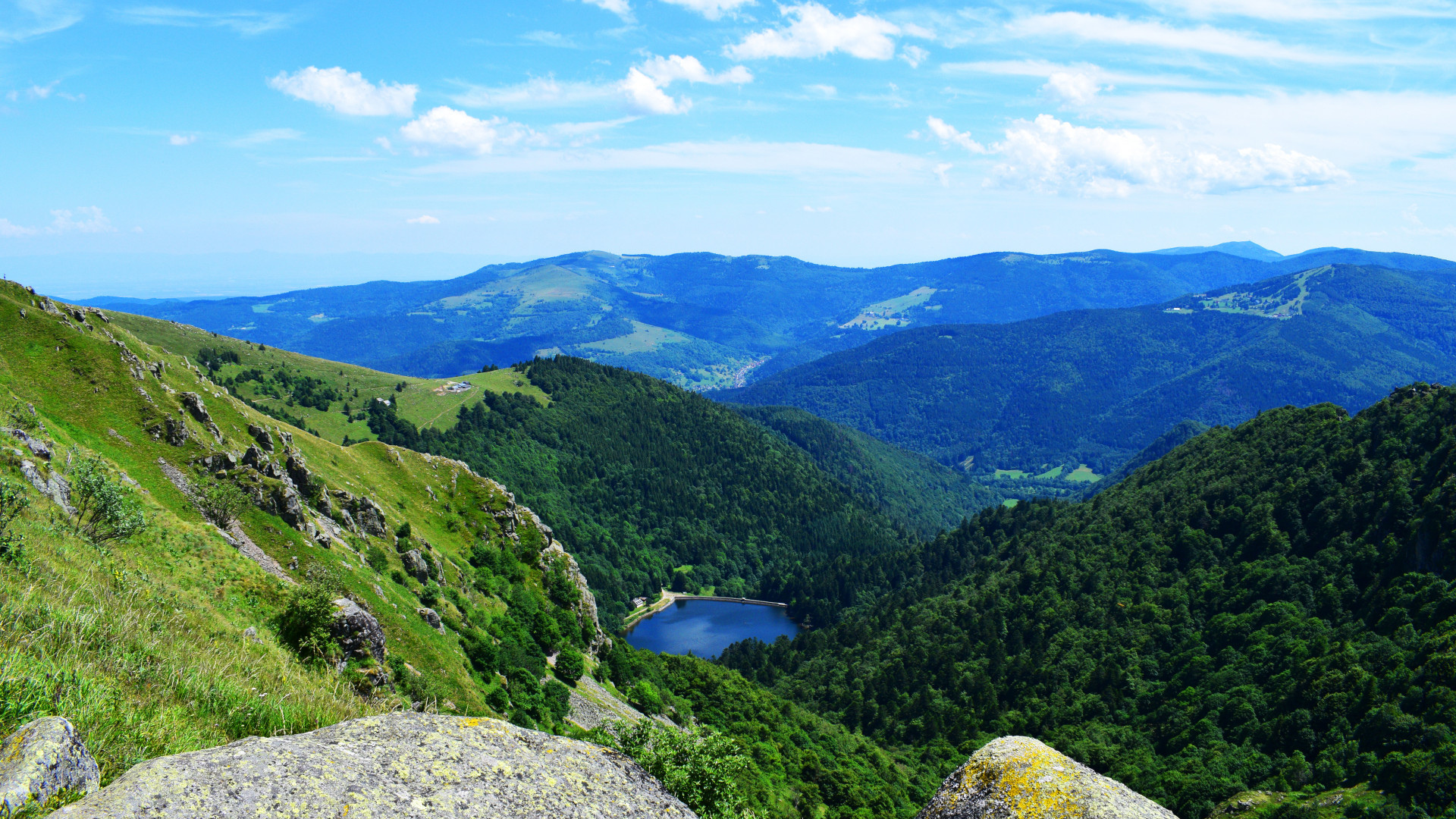Serpentinization-sourced natural hydrogen is among the most well-studied generative systems worldwide. Its understanding has greatly benefited from observations of active systems at slow-spreading mid-ocean ridges, such as those located in the Atlantic. As oceans close to form mountain belts through tectonic cycles - a process known as the Wilson cycle - these hydrogen-producing rock formations can be preserved and found within mountain belts, specifically in ophiolites—a term that encompasses rocks originating from ancient oceanic seafloors.
Over the past three decades, research has revealed that there are different ophiolites e going along with mantle rocks with distinct origins, compositions, geological histories and therefore hydrogen-generating potentials. This diversity is particularly striking in the Western Pyrenees, which has emerged as a hotspot for natural hydrogen exploration. In this area, mantle rocks of subcontinental origin were exhumed beneath sedimentary basins - such as the Mauléon basin - during a failed attempt to form an ocean ~100 My ago. Notably, the subsequent formation of the Pyrenees had a minimal impact on the pre-orogenic geology, preserving a high-potential mantle kitchen—a fault-controlled system connected to an upstream meteoric water recharge and a downstream hydrogen discharge area.
The aim of this field trip is to explore the key geological parameters of the Pyrenean system and its natural hydrogen system. On the first day, participants will follow the upstream plumbing system, tracing the path from the Pyrenean reliefs toward the mantle kitchen. The second day will focus on the mantle kitchen itself, extending to prospective exploration sites, with an emphasis on prospection technologies.
NOTES :
· Arriving place: Biarritz
. Date : November 11 & 12.
· Max number of participants: 20
· Material: need for good shoes and cold weather clothes.
What is included:
- Shuttle from airport / train station to hotel
- 2 nights hotel accommodation
- Breakfast, lunch and diner for the duration of the trip
- Shuttle from hotel to airport / train station
- Transportation to and from field trip areas
What is NOT included:
- Travel to Biarritz
- Travel from Biarritz
Schedule:
- November 10:
- Arrival at Biarritz
- Shuttle from airport / train station to Hotel
- Diner at the hotel
- November 11:
- Departure from the hotel in the morning
- Field Trip
- Lunch
- Presentation
- Return to the hotel
- Diner
- November 12:
- Departure from the hotel in the Morning
- Field Trip
- Lunch
- Shuttle to airport / train station
Shuttle departure times:
- November 10:
- Shuttle from Biarritz Train Station to hotel: 4:30PM
- Shuttle from Biarritz airport to hotel: 3:30PM
- November 12:
- Shuttle from hotel to Biarritz Train Station: 12:00PM
- Shuttle from hotel to Biarritz airport: 11:00AM
In partnership with :




